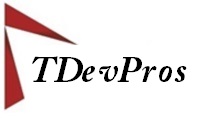 A friend asked me recently, “What does coaching have to do with recruiting?”
A friend asked me recently, “What does coaching have to do with recruiting?”
I’ve found that after coaching for almost ten years and recruiting for more than twenty – a huge focus for most of us is about what we will do with our lives. Since so much of our time is spent working – our work should have meaning and purpose. Executives, managers, educators and employees want meaning and purpose. Parents seek purposeful careers and meaningful lives for themselves and their children. Wouldn’t you agree that it’s important to plan and map out your career with intention to enjoy the time you spend on the planet? We all have talents and gifts to share. How do we choose meaningful work? Partnering with a coach to develop a career path can be a successful strategy. The next time you find yourself at a career crossroad – consider asking a talent coach to help you choose intentionally, considering your talents, gifts and passion. Increasingly recruiters are becoming talent coaches – learning and applying coaching skills to better serve you on your career path.
In the future, a long and fruitful career will be dependent on careful planning and the ability to adapt and change. The pace of technology changes alone will require continuous skill development and continuous learning throughout a career. In order to advise candidates and employees as they adapt to this pace of change, successful recruiters will continue to develop coaching capabilities that have not previously been part of their role.
As career talent coaches, recruiters can help current and prospective employees think through the diverse personal and professional experiences they need to enhance their quality of life and workplace opportunities. Gone are the days of compartmentalizing career and personal life. Employees increasingly find they must integrate the two – so their career choices are based on life values and purpose. Recruiters are beginning to ask different questions. Some Examples:
- What have you have taught yourself in the last six months?
- What do you want to learn in the next six months?
- How do you determine if your time in a job is important to your growth as a person?
- What would be your measure of success for accomplishment in your next career move?
- Who or what was the most important influence to your career to date?
As people consider the various opportunities available to them, both internally and externally, we see a growing need for recruiters to be able to help both prospective employees and current employees consider how to sort through potential career choices and promotional opportunities while aligning their personal values as well as their education, skill development and existing work experience into the puzzle that is their career.
Executive search and many agency recruiting firms have understood this practice as critical to the success of candidates they present to their client employers. Candidate coaching has been a standard practice. Not only does it create a better candidate experience, it reduces unnecessary candidate rejections. It also supports candidate confidence and improves interview performance.
When organizations recognize this shift, a recruiter that provides coaching to candidates can ensure that fewer qualified candidates will be summarily rejected because of their personal values being misaligned with company culture and values. When an employee’s personal values, choice for meaning, purpose and passion align with those of the organization – you have employee engagement, enthusiasm and a productive experience for both!

Recent Comments